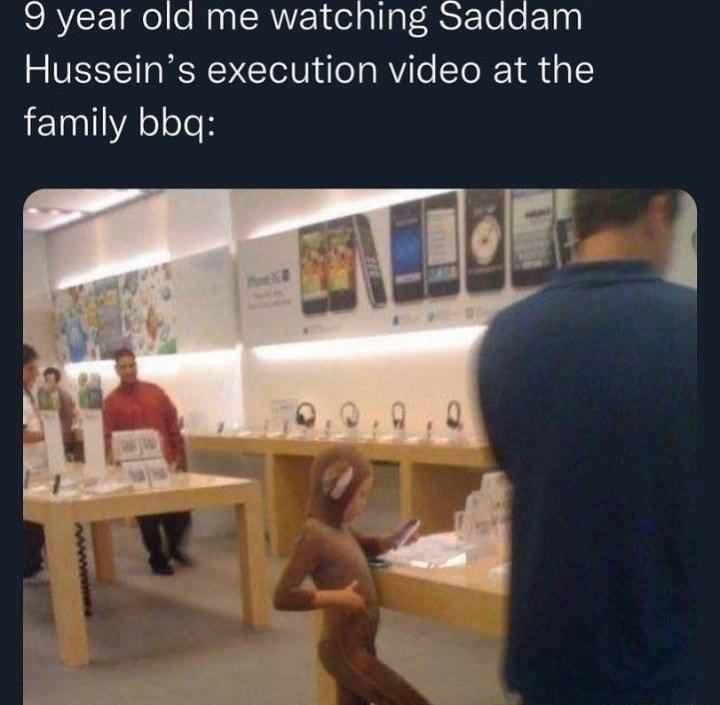Why the Generations Can't Understand Each Other
The stereotypes are usually wrong because the categories are too big.
My dad remembers “Duck and Cover” campaigns. When he was in high school, Elvis and the Beatles were new and a garage band was still a viable part time job for a teenager. When my mom was in high school, she and her friends danced to disco and played video games in arcades. When JFK was assassinated, my mom had not yet developed conscious narrative memory but my dad already had a record collection. These days, even though he has a smart phone, my dad still leaves it at home more often than not, while my mom is on TikTok. Despite this vast gulf in experiences, they are both lumped into the same generation.
I’m not the first to suggest that the Baby Boomer category is too wide. Cultural critic Jonathan Pontell coined the term Generation Jones to describe those that were born between 1954 - 1965, at the tail end of the Boomer days but the first few years of Gen X. These folks were kids for Watergate, the oil crisis, stagflation, and Pong. When the Civil Rights Act was passed in 1964, Generation Jones were still children and babies, whereas older Boomers were already driving cars, dating, getting jobs or getting ready to go to college. It really makes no sense to say they had the same childhoods.
With all the generations defined in 15 year minimum splits, you see these same issues cropping up again and again. Consider Gen X: the first year of them were 12 when the first Star Wars came out, whereas the last of that generation was 12 for Terminator 2. Older Gen X gave us music dripping with nihilism, apathy and self-loathing, whereas younger Gen X musicians gave us confidence, new romantic classics, self-empowerment, and sex-positivity. The cultures of both bookends are demonstrably different.
Millennials have a similar issue, but advancements in technology made these internal differences even funnier. I personally break my generation into three categories: Reagan Millennials (1981-87), Daihatsu Millennials (1988-92), and Zillennials (1993-96).
The Reagans have a lot in common with younger Gen X. High parental divorce rates, early mass market video games that you could play at home, the Satanic Panic, and Indiana Jones (the Katy Perry video I cite above depicts such imagery). They were already teenagers when the internet became more than an academic plaything and started impacting the economy in unprecedented ways. Daihatsus were still playing with toys and Zillennials were infants.
Daihatsu Millennials - who I named after the East Asian car maker that only sold vehicles in the U.S. between 1988-1992 - have some cultural touchstones in common with our older Reagan siblings - namely the movies and music - but our childhoods were a bit more idyllic. By the time we got potty trained, the Berlin Wall had just come down, the Soviet Union collapsed, violent crime plummeted by over 40%, jobs were skyrocketing, the federal budget was balanced (we were even paying off the debt), and technology was advancing at jaw-dropping speeds with an optimism for the future that is paralelled only by the Jetson’s. They even called this era the end of history.
That is, of course, until 9/11.
The oldest Millenials were 20 when the World Trade Center was attacked. Daihatsus were still very young, but still old enough to understand what was happening. We knew why our parents were scared, and could even understand that things could change. Zillennials, however, especially those born in 1996, where just slightly too young to receive the full impact at the time, and the resulting Sisyphean Vietnam 2.0 that followed would impact us in different ways. As with Boomers and JFK, 9/11 serves as a perfect example of the variability between these childhoods.
Zillennials - as is painfully obvious by the very lazy name I came up with - have quite a lot more in common with Gen Z. After all, being 25 during the COVID pandemic isn’t that much different than being 21, especially since both ages were more likely to be picking up extra shifts with Door Dash, whereas Reagans and Daihatsus were already fairly well integrated into entry and mid level economic positions, and a lot of us already had jobs where you could work from home.

Zillennials are in a tough spot. After all, they were in middle school when Facebook opened to people who weren’t college students. As with Gen Z, their economic prospects are as limited as their housing (which is bleak coming from a Daihatsu Millennial). In some ways I feel the worst for them, because they receive all the stereotypical criticisms for two generations (and from both directions), as if neither generation wants them. As with Generation Jones, they don’t fit either of the stereotype bookends, and they share broad similarities with those just a few years younger and older than them without any recognition while receiving entirely too much derision. In other words, Zillennials and Jones Boomers get the most inaccurate flak from other generations because they don’t fit into any narrative.
This has been a broader topic I’ve been thinking about a lot lately, and I suspect will come back up in later posts. The different generations - and when I say that I’m including the subcategories - have each had unique and interesting experiences and our cultures are dynamic yet idiosyncratic. I’m particularly interested in how each generation has engaged in protest - politically as well as culturally. This topic specifically will certainly be the subject of later posts.
But in the meantime, what do you think of the subcategories? Gen Z: how would you break yourself up into categories, if at all? What do you suspect will be your similarities and differences with Generation Alpha? Are you ready for their criticism? Let me know what you think.








